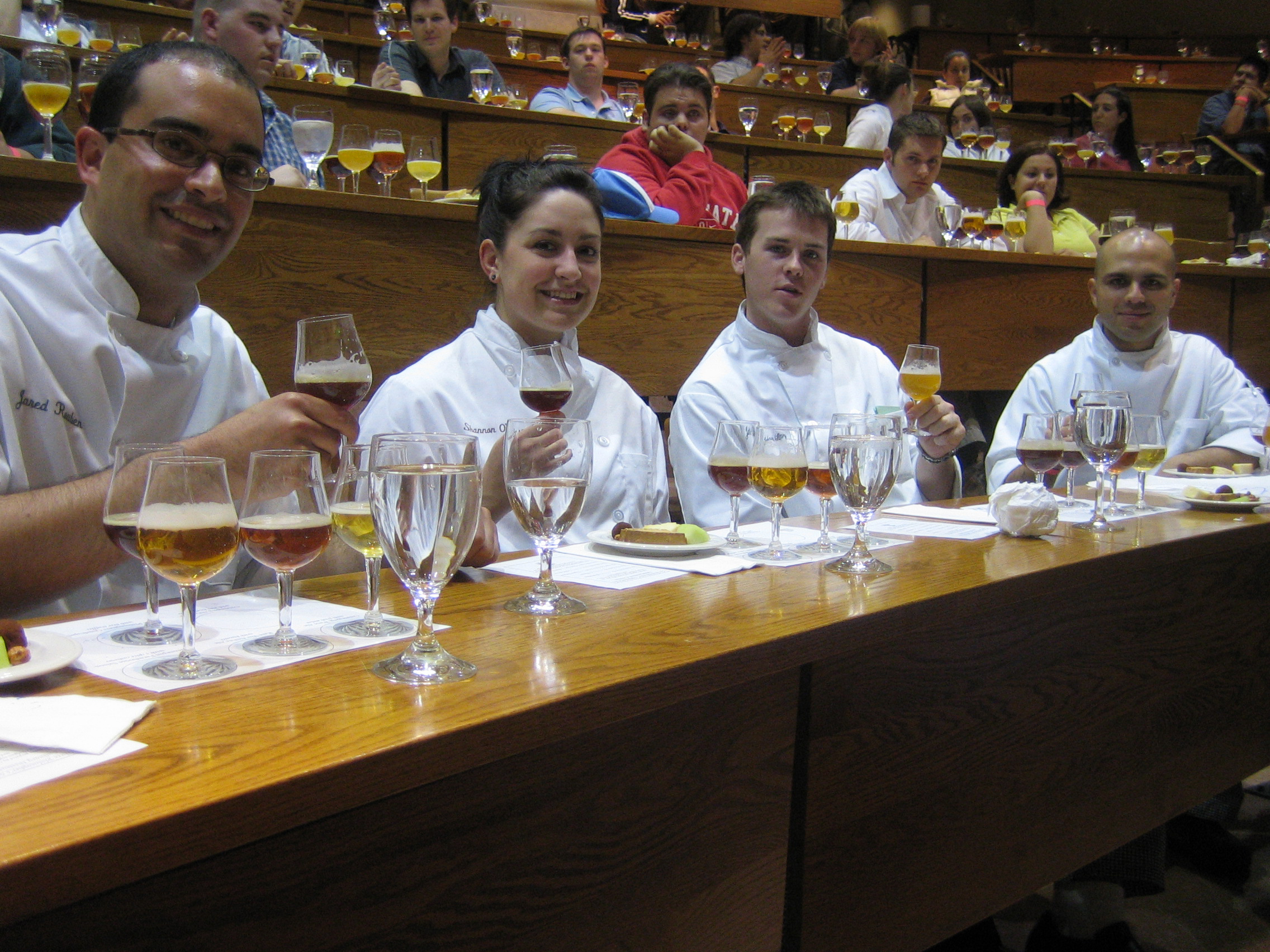A fervent beer lover I know was sitting in a multi-starred restaurant. He’d made his food selection, and was studying the drinks menu. After glancing at the beer list, he scanned the wine pages before calling the sommelier.
Most chefs don’t drink wine at the end of the night: it’s too heavy. They drink beer.
“I was looking for something in a jug red,” he said.

The next generation of chefs learn about beer: Jared Rouben, Shannon O’Neill, John Iglinsky, and Emiliano Pimentel-Morado enjoy a tasting at the CIA. (Bonnie Frumkin)
“I beg your pardon?” asked the startled sommelier.
“You know, maybe a wine that comes in a box,” explained the diner.
“I’m sorry sir,” said the sommelier, offended, “We only stock fine wines that complement our cuisine.”
The diner swooped in for the kill. “Then why do you have such terrible beer choices?”
No restaurant worth its Zagat rating would maintain a wine selection that consisted of a half dozen brands of white zinfandel. Yet many beer lists are exactly that: several different breweries’ interpretations of a single style, the ubiquitous light lager. What an opportunity lost.
Modern high-end restaurants and specialty beer breweries have much in common. Both take pride in using only the best ingredients. Flavor takes precedence over convenience. Both charge accordingly high prices, and cater to sophisticated audiences willing and able to pay those prices.
In recent years, top breweries and restaurants both have combined tradition with audacious experimentation. And both are at ease expressing local identity: these days, the best brewers, like the best chefs, create something that is far more than a faithful European knock-off.
Specialty or craft brewing shares so many characteristics with fine food that Italy’s Slow Food movement immediately recognized the affinity and often showcases such beers at Slow Food events.
So it’s puzzling that great food and great beer are so rarely found in the same place here at home.
For the most part, good beer exists alongside mundane food: burgers, pizza, wings and smothered nachos are staples of American brewpubs and multitaps.










I know this is an old article, but I stumbled upon it, and had to comment. One of my continuing complaints is that good (food) restaurants know nothing about beer and good brewpubs know nothing about food. (I should also add most restaurants in general have generally crappy food, but that’s another pet peeve.) I cannot count the number of times I enjoyed a great beer at a brew pub only to be served some of the most disappointing food. It almost seems to me that the better the beer gets, the worse the food gets. And not to be too alliterative, I don’t get it. Of course, even at a good food place, good wine is only found if the place has someone employed for whom that is a specialty. Brewpubs need to seek out some better chefs, and perhaps if there were a fancy French word like sommelier for an equivalent beer expert, we could get somewhere at the existing good eats places.